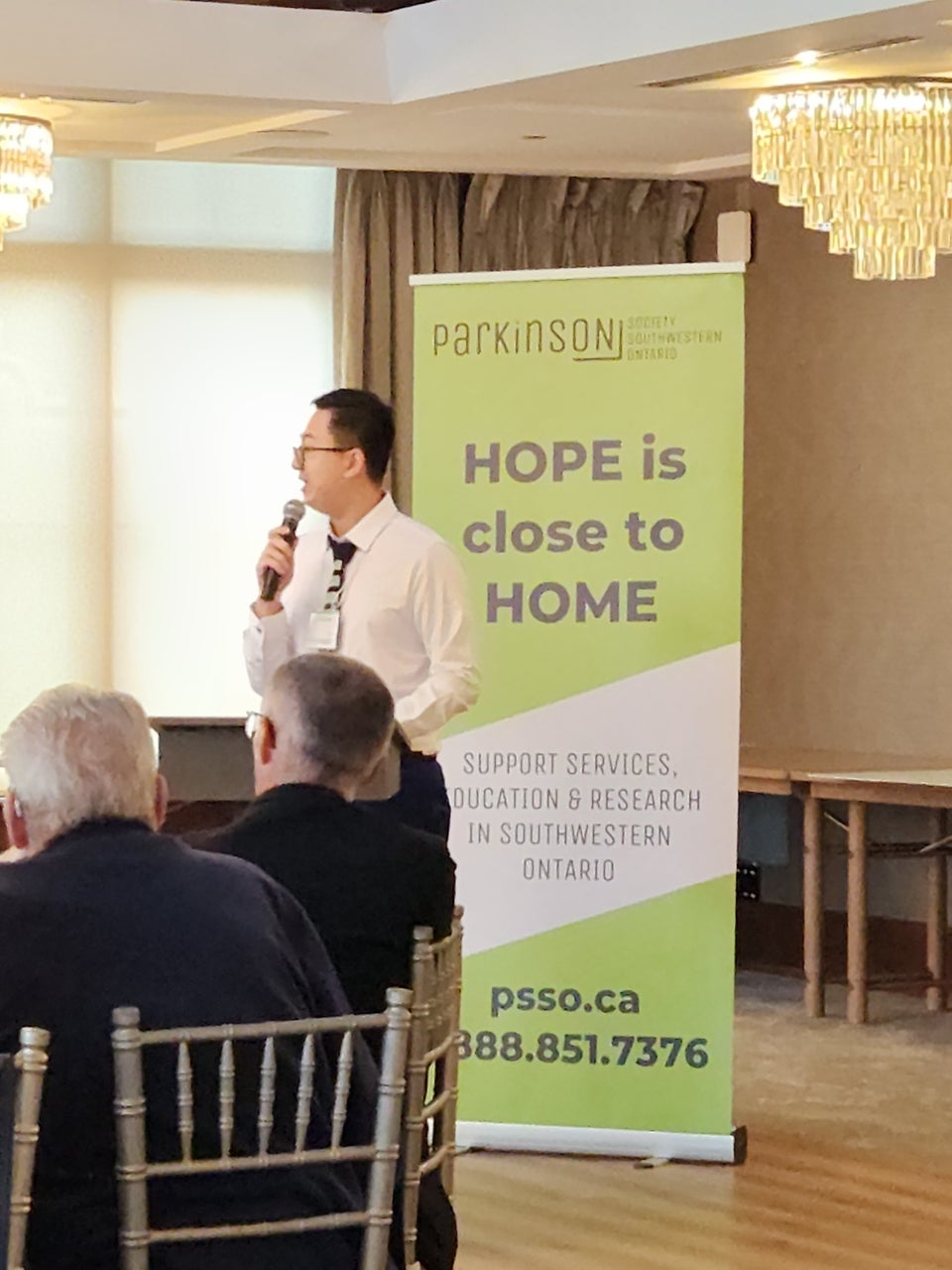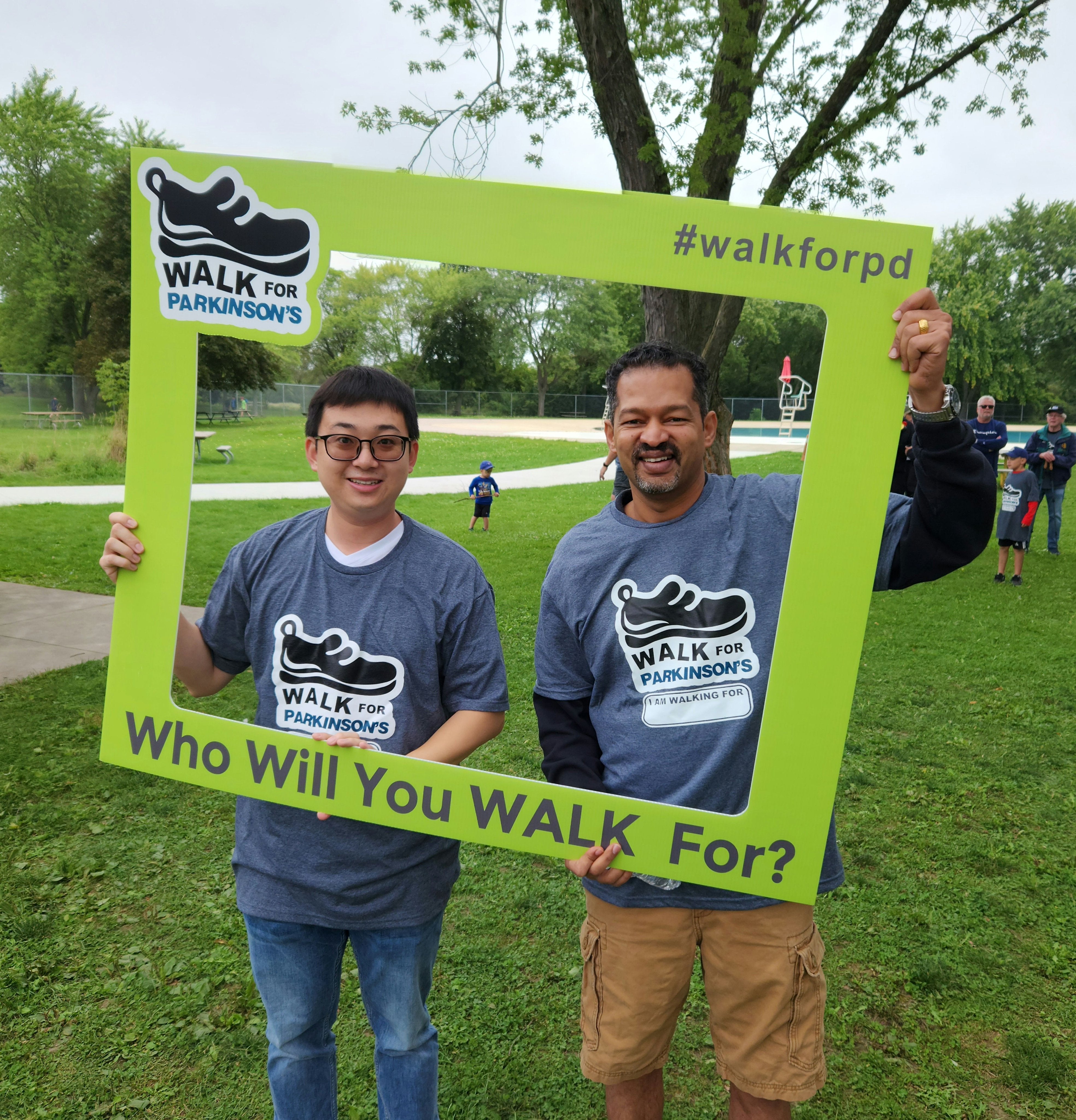
Breaking down roadblocks to help patients suffering from complex brain disorders
Waterloo Pharmacy PhD student receives graduate student scholarship from Parkinson Society Southwestern Ontario

Waterloo Pharmacy PhD student receives graduate student scholarship from Parkinson Society Southwestern Ontario
By Milana MadzaracThe Parkinson Society of Southwestern (PSSO) Ontario honoured Yusheng Zhao, PhD student from Waterloo Pharmacy, with a graduate scholarship for his research related to Parkinson’s disease (PD). He is the first Waterloo Pharmacy student to win this award.
PD is a debilitating brain disorder that affects more than 100,000 Canadians, specifically the elderly population. Those affected by PD experience muscle stiffness that lead to impaired balance, difficulty in walking and talking, along with behavioural and personality changes. Current treatments and medications for PD can provide only symptomatic relief but no cure has been found yet.
Zhao’s research involves discovering innovative small molecules as potential molecular tools and drug candidates through medicinal chemistry-based study.
Focusing on Alzheimer’s disease, another brain disease that shares similarities to PD in disease mechanisms, Zhao feels that the knowledge and experience gained from Alzheimer’s drug discovery research can be directly translated to the area of PD. His goal is to understand the disease mechanisms and to discover innovative therapies.

Yusheng Zhao presenting his research during the PSSO Ontario event at Whistle Bear Golf Club in Cambridge, Ontario.
“The human brain is like a highway. Each car is travelling and carrying a message to a building alongside the road. In the human brain, messages travel similarly from one cell to another,” says Zhao.
“In the brain of a patient with PD, similar to construction sites on the road that delay cars, there are roadblocks or nasty speed bumps known as alpha-synuclein aggregates. These neurotoxic glue-like proteins gather and block the cell from delivering its message to the destination cell.”
Zhao is researching a library of small molecules to prevent the formation of these toxic protein aggregation in the brains of PD patients and prevent the loss of brain cells.
This fundamental research will help researchers further understand the disease mechanisms and to help answer how protein aggregation works.
“Our research in the past decade led to the discovery of several novel molecules that are able to reduce the toxic effects of protein aggregates in Alzheimer’s. Yusheng’s work in the field is helping us close the knowledge gap to better understand the disease mechanisms of Alzheimer’s and PD,” says Dr. Praveen Nekkar Rao, associate professor at Waterloo Pharmacy.

Zhao and Dr. Nekkar Rao at the Walk for Parkinson’s event.
The ultimate goal is to answer the most important question – what are the causative factors of PD, and to develop novel therapies.
Zhao’s previous work on Alzheimer’s led to the discovery of novel molecules that have the ability to reduce the toxic effects of protein aggregates, published in ACS Chemical Neuroscience.
“There’s nothing quite like the moment you discover something new,” says Zhao. “That process of taking on a challenge, doubting myself and then finding a creative solution to the problem, is the part I find most enjoyable as a graduate student.”
Zhao received the graduate student scholarship on Oct 2, 2023 at an event held by PSSO Ontario at Whistle Bear Golf Club in Cambridge, Ontario. This funding has had a profound impact on the research and will help expand the laboratories capability to efficiently screen the molecule candidate while further expanding Zhao and Dr. Nekkar’s research to discover novel therapies for PD and Alzheimer’s.
This scholarship is sponsored by PSSO and Mitacs Canada.

Read more
New evidence-based classification rules expand access and improve fairness for Para Cross Country and Para Alpine skiers

Hand holding small pieces of cut colourful plastic bottles, which Waterloo researchers are now able to convert into high-value products using sunlight. (RecycleMan/Getty Images)
Read more
Sunlight-powered process converts plastic waste into a valuable chemical without added emissions

Dr. Travis Craddock, professor and Canada Research Chair, says the team's findings change our basic knowledge of biology (University of Waterloo).
Read more
New study reveals quantum-level effects in biology with major implications for treatment of some brain diseases
The University of Waterloo acknowledges that much of our work takes place on the traditional territory of the Neutral, Anishinaabeg, and Haudenosaunee peoples. Our main campus is situated on the Haldimand Tract, the land granted to the Six Nations that includes six miles on each side of the Grand River. Our active work toward reconciliation takes place across our campuses through research, learning, teaching, and community building, and is co-ordinated within the Office of Indigenous Relations.